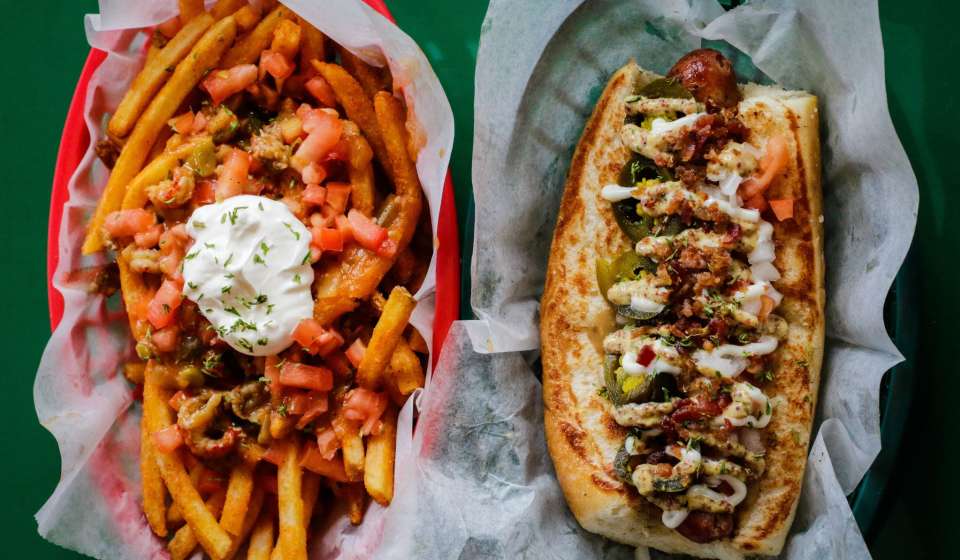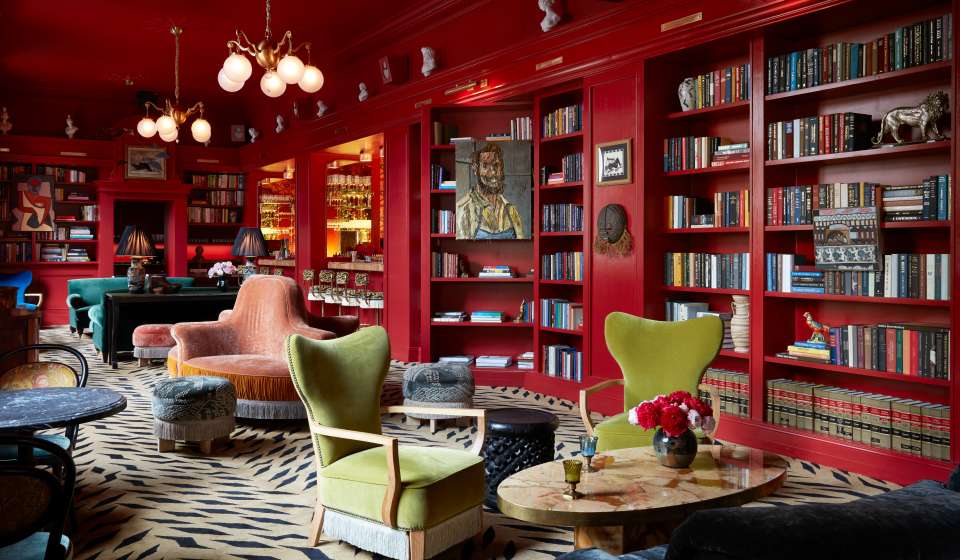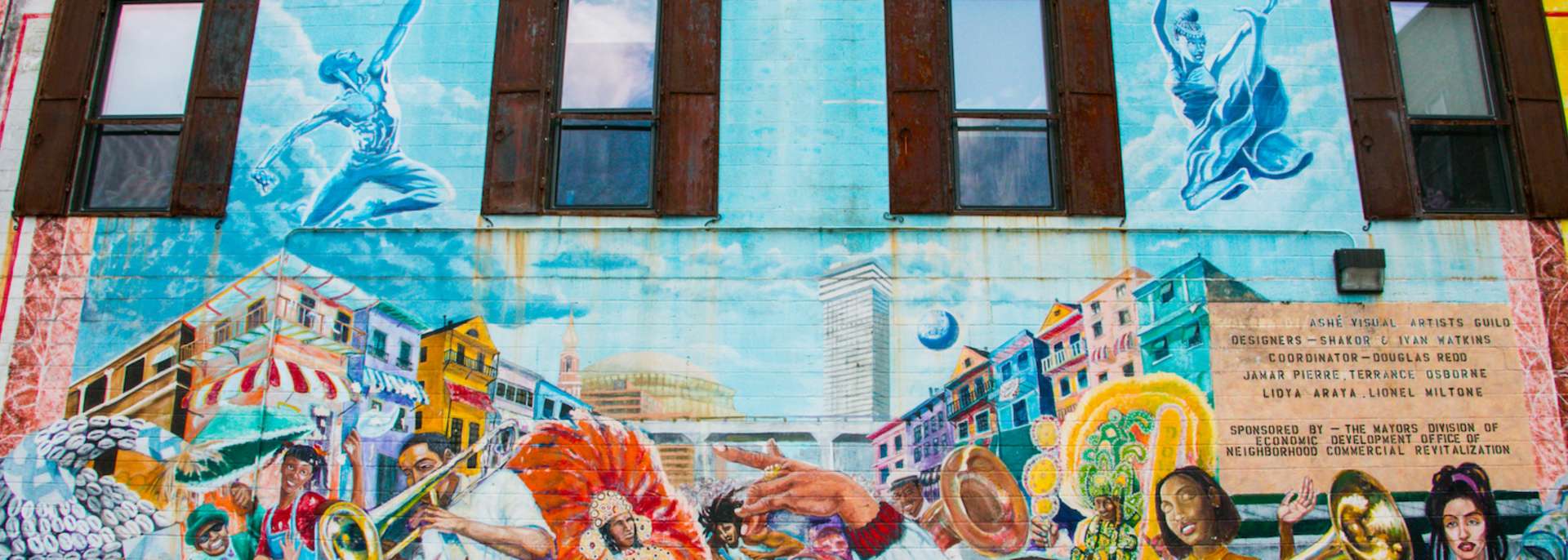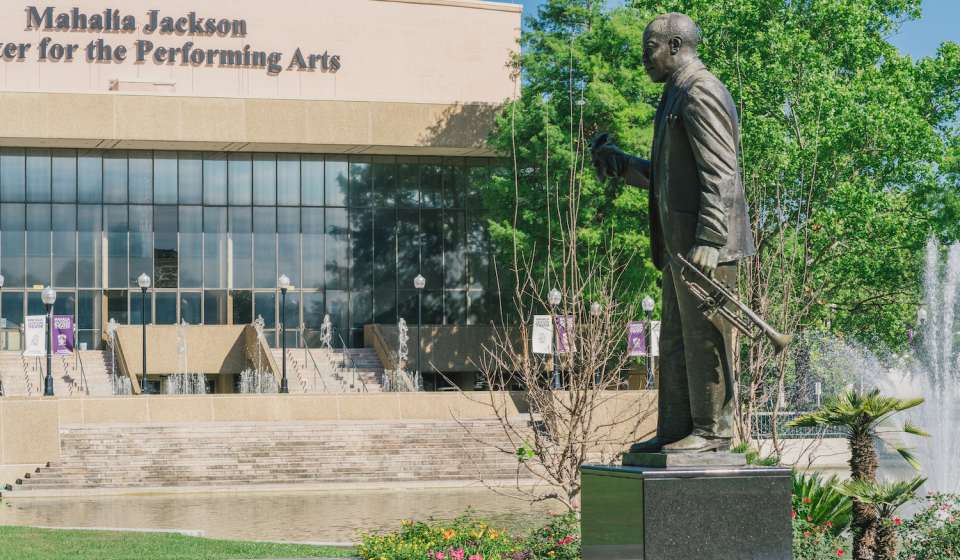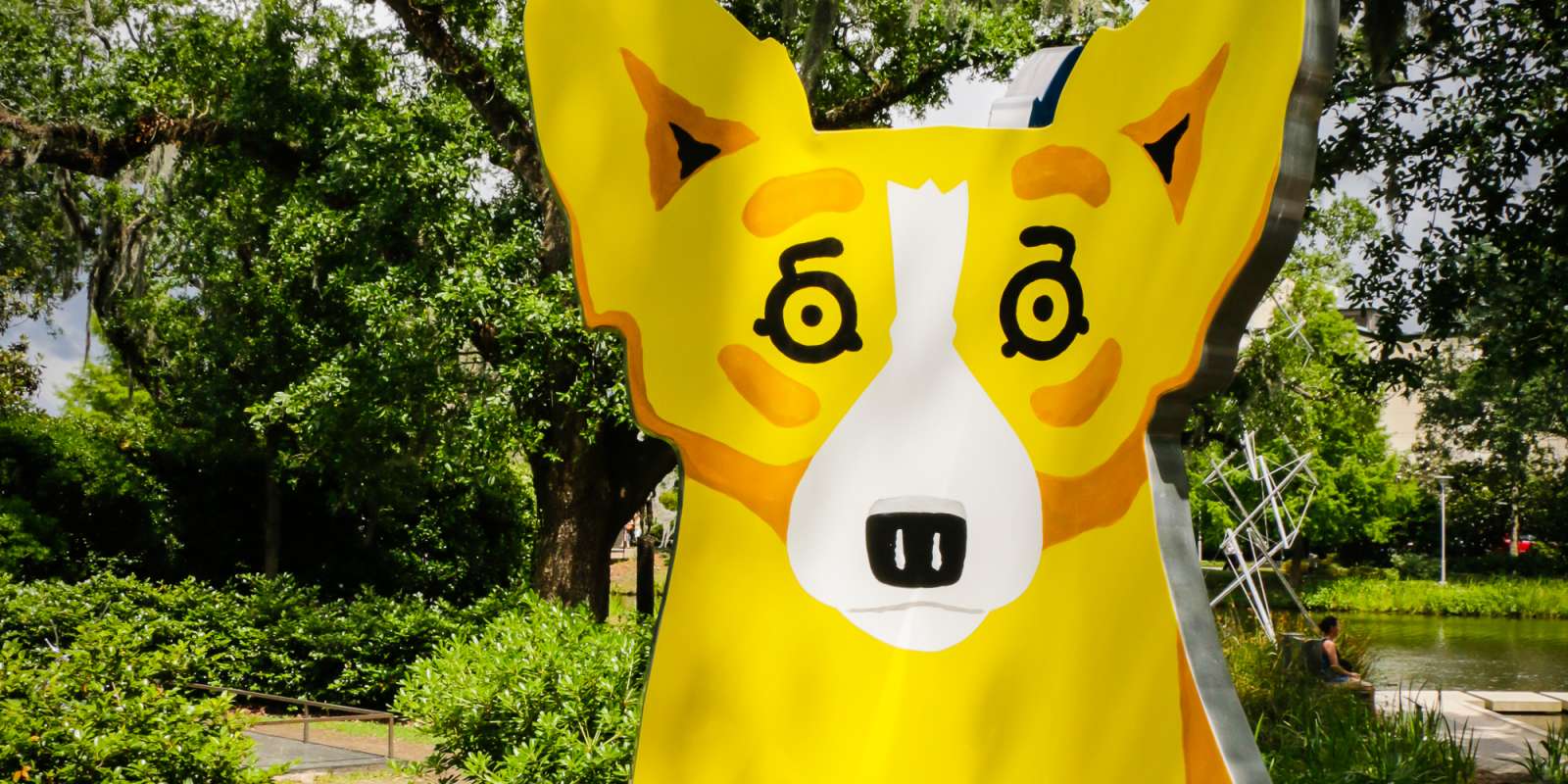History lies in the streets of New Orleans, with a few bearing the names of local Civil Rights leaders and prominent Black New Orleanians. Boulevards, parks, public spaces, playgrounds and theaters are named in honor of activists like Oretha Castle Haley, A.L. Davis and others who spent their lifetimes fighting racial injustice in America. Learn their histories and visit these spots next time you’re in NOLA.
Streets and Boulevards
Oretha Castle Haley Boulevard
Oretha Castle Haley was a born and raised New Orleanian who played a key role in the Civil Rights Movement. Her activism began when she was a student at Southern University of New Orleans. She stood to put an end to segregation and to promote equal voting rights for her community and in rural Louisiana. The street, located in Central City, was renamed in her honor in 1989.
Today, Oretha Castle Haley Boulevard is a thriving corridor of diverse restaurants and community spaces, including the Ashé Cultural Arts Center, The New Orleans Jazz Market and Café Reconcile. It intersects with Martin Luther King, Jr. Boulevard.
Martin Luther King, Jr. Boulevard
Perhaps the most well-known leader of the Civil Rights Movement, the Rev. Dr. Martin Luther King, Jr.’s legacy is honored with a boulevard in Central City in New Orleans. King’s connection to New Orleans comes in many forms, from the founding of the Southern Christian Leadership Conference to his allyship with A.L. Davis, Mahalia Jackson and other Civil Rights activists.
A.P. Tureaud Avenue
A.P. Tureaud was a New Orleans-born attorney who served as lawyer for New Orleans’ chapter of the NAACP during the Civil Rights Movement. Tureaud played a key role in taking legal action against Jim Crow segregation in Louisiana and fighting for integration of the state’s public school system. The road named in his honor can be found in the Seventh Ward of New Orleans.
Homer Plessy Way
Though he pre-dates the Civil Rights Movement, Homer Plessy paved the way for those who would fight against segregationist laws in his footsteps. Plessy deliberately violated a segregationist law in order to get the attention of the U.S. Supreme Court by sitting in the Whites-only section of a train from New Orleans to Covington. The case of Plessy v. Ferguson upheld the doctrine that came to be known as “separate but equal” in a landmark 1896 decision. Though Plessy would not live to see racial progress in America, his groundwork paved the way for Brown v. Board of Education, which deemed segregation in public schools unconstitutional. Today, the street in the Bywater where the act of civil disobedience occurred is named in his honor.
Norman C. Francis Parkway
As of January 1, 2021, the street leading up to Xavier University has been renamed for former president Dr. Norman C. Francis. Dr. Francis first attended the historically Black university before ascending to leadership, transforming the school into an educational giant over his 47-year tenure. Active in the Civil Rights Movement, Dr. Francis housed the Freedom Riders, a group of activists protesting segregation, at university dormitories. Dr. Francis is the recipient of the Presidential Medal of Freedom and multiple honorary degrees.
Parks and Notable Places
Mahalia Jackson Theater for the Performing Arts
Known as the “Queen of Gospel,” Mahalia Jackson was born in 1911 New Orleans. Her career took her to Carnegie Hall, Europe and to the March on Washington in 1963, where she sang in front of a quarter of a million people and stood alongside the Rev. Dr. Martin Luther King, Jr. She played a key role in the Civil Rights Movement, advocating for an end to segregation and singing at rallies. Jackson is the recipient of multiple Grammy Awards and has been inducted into the Grammy Hall of Fame. In New Orleans, the Mahalia Jackson Theater for the Performing Arts is named in her honor and located in the greenspace of Armstrong Park.
A.L. Davis Park
Named from New Orleans' first Black city council member, the Reverend A. L. Davis, this park is located near the church where he preached, New Zion Baptist Church. Davis was a founding member of the Southern Christian Leadership Conference alongside the Rev. Dr. Martin Luther King, Jr. Renamed for Davis in 1979, the park today is a gathering place for citywide celebrations, including the Mardi Gras Indians’ Super Sunday and Martin Luther King, Jr. Day celebrations. Located in the park are tennis courts, a swimming pool, basketball court, children’s playground and more.
Joseph M. Bartholomew Golf Course
Though he pre-dates the Civil Rights Movement, the grounds that Joseph M. Bartholomew laid have lasted the test of time (quite literally). Born in 1885 New Orleans, Bartholomew grew up on the greens of Audubon Golf Course, working as a caddy. He went on to become the first African American man to build a golf course and went on to design and build courses around the world and here in New Orleans. The sprawling golf course in Pontchartrain Park, one of the first subdivisions in the segregated South designed for African Americans, was renovated and renamed in Bartholomew’s honor in 1979. Today, the course is one of the best spots to tee off in New Orleans.
Museums and More
Louisiana Civil Rights Museum
A historic journey 30 years in the making, the Louisiana Civil Rights Museum is a space where you can come to learn about the state’s civil rights history. It all started with the Louisiana Civil Rights Trail, a project from Lt. Governor Billy Nungesser and the Louisiana Office of Tourism that was launched to memorialize the courage and determination of the people who fought for change. Visit the museum, website, and the trail markers throughout the state.
For more on New Orleans Black history, including neighborhoods, museums and Black-owned restaurants, see here.

